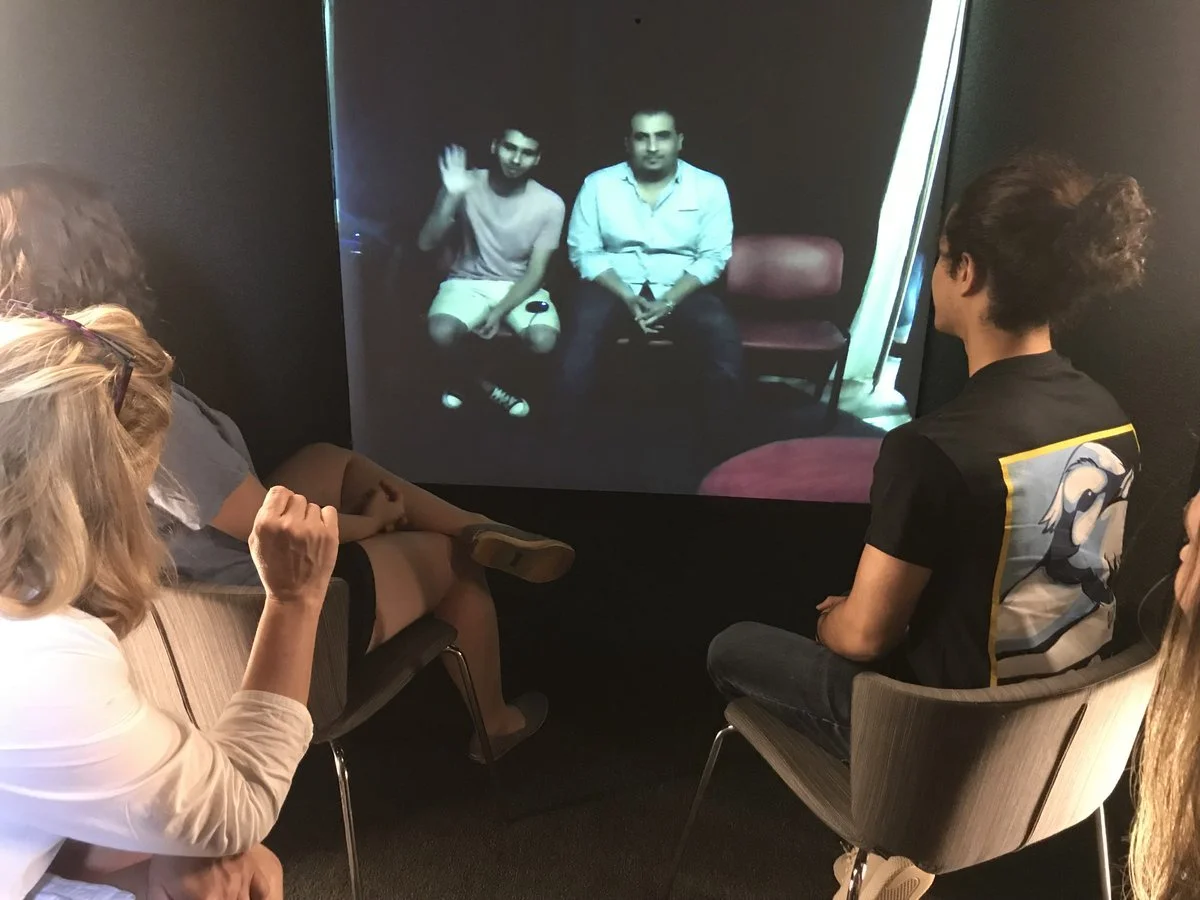Humanitarian Design Across Borders
The Johns Hopkins Department of Biomedical Engineering is globally recognized for applying innovation and design-thinking to complex public health challenges. In 2018, the department partnered with Shared_Studios through a grant from the Stevens Initiative to create a collaborative, cross-border design experience for students—one that paired technical learning with deep human connection.
Client
John Hopkins University
The Experience
In a first-of-its-kind humanitarian design hackathon, small teams of students from Johns Hopkins, the American University of Beirut, and Gaza Sky Geeks connected through portals.
Over the course of several weeks, small interdisciplinary student groups worked together to identify and prototype solutions to real-world public health challenges faced in their communities.
Rather than rely on assumptions or research alone, students listened, shared, and co-developed ideas in an environment that prioritized empathy and mutual understanding. Students explored how cultural, geographic, and economic factors shape health equity and access, and applied design thinking informed by direct cross-cultural exchange.
The Results
The project demonstrated how immersive dialogue can transform the design process, anchoring innovation in lived experience and fostering authentic global collaboration.
Student Outcomes:
Students reported a stronger understanding of the role of culture, infrastructure, and politics in shaping public health.
Many reflected on how the experience expanded their approach to biomedical design—shifting from solution-first thinking to deeper, community-informed inquiry.
The program improved students’ cross-cultural communication and teamwork, especially under real-time constraints.
Faculty Reflections:
Faculty noted how the Portal created a sense of “being in the room together” that was essential to the program’s success—building trust and shared purpose quickly across teams. They emphasized that this environment helped students develop not only technical solutions, but a more human-centered approach to global health design.
-
"The technology of the Shared_studios Portal allows us to do what we do, except across the ocean. There isn’t a single problem that humanity faces today that cannot be addressed by human intellect, creativity and innovation - if we find ways to work together."
Dr. Youseph Yazdi, Executive Director, Center for Bioengineering Innovation & Design
-
"I was drawn to the hackathon because of the Gaza angle. It was great to get firsthand experience of solving problems, and just putting my head down and seeing what's possible."
Graduate Student, Applied Physics Laboratory
-
"It was an amazing experience. One day I hope to visit the United States to be in touch with my team members, as well as the other teams and experts, to thank them for their efforts and for teaching me something new."
Hadil Elburai, Gaza Sky Geeks
Inside the Experience: Articles & Media
2018
2018
OTHER WORK
In 2020, Johns Hopkins partnered again with Shared_Studios—this time with Yale University—to lead a qualitative research project exploring perspectives on policing and public safety in the U.S., Kenya, Nigeria, and Brazil. The project used Portals to facilitate open-ended conversations with community members, helping researchers surface local experiences and values often overlooked by traditional data collection methods.
See a project summary and article.







